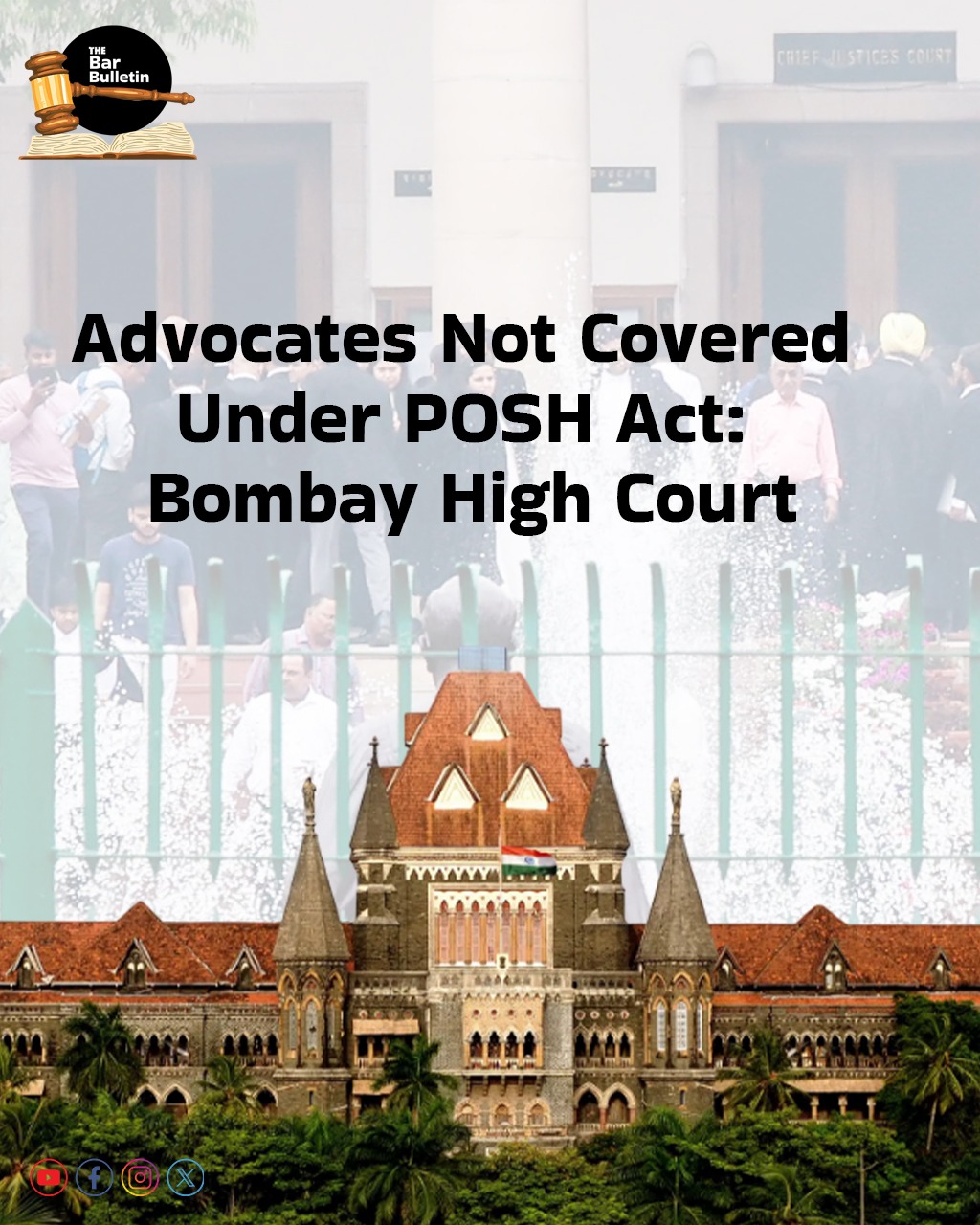The Bombay High Court has held that the provisions of the Sexual Harassment of Women at Workplace (Prevention, Prohibition and Redressal) Act, 2013 (POSH Act) are not applicable to practising advocates, as there exists no employer-employee relationship between Bar Councils and advocates. The ruling came on July 7, 2025, while disposing of a Public Interest Litigation (PIL No. 16 of 2017) filed by the UNS Women Legal Association.
The petition sought directions to the Bar Council of India (BCI) and the Bar Council of Maharashtra & Goa to establish permanent Internal Complaints Committees (ICCs) at all Bar Council offices and Bar Associations in Maharashtra, for addressing complaints of sexual harassment faced by women advocates. The petitioner relied on the Supreme Court’s directions in Medha Kotwal Lele v. Union of India and the enactment of the POSH Act, 2013.
However, a Division Bench of Chief Justice Alok Aradhe and Justice Sandeep V. Marne ruled that the POSH Act only applies where there is an employer-employee relationship, as defined under Sections 2(f) and 2(g) of the Act. Since advocates are not employees of the Bar Councils, the Act does not apply to them. The Court clarified that the Act remains applicable to employees of the Bar Council of India and the State Bar Council, and both entities confirmed that ICCs are already in place for such employees.
For women advocates, the Court pointed to the disciplinary jurisdiction of the Bar Council under Section 35 of the Advocates Act, 1961, which permits action against advocates for professional or other misconduct, including harassment.
In light of these findings, the Court found no further relief necessary and disposed of the PIL.
Appearances:
Petitioner: None
Respondent: Mr. Shekhar Jagtap with Ms. Sairuchita Chowdhary for respondent no.1 – Bar Council of India.
Dr. Milind Sathe, Senior Advocate with Ms. Meghna Gowalani i/by Mr. Yogendra Rajgor for respondent no.2-Bar Council of Maharashtra & Goa.
Smt. Jyoti Chavan, Addl. Govt. Pleader with Smt. Fatima Lakadawala, AGP for respondent no.4 – State.
![]()



